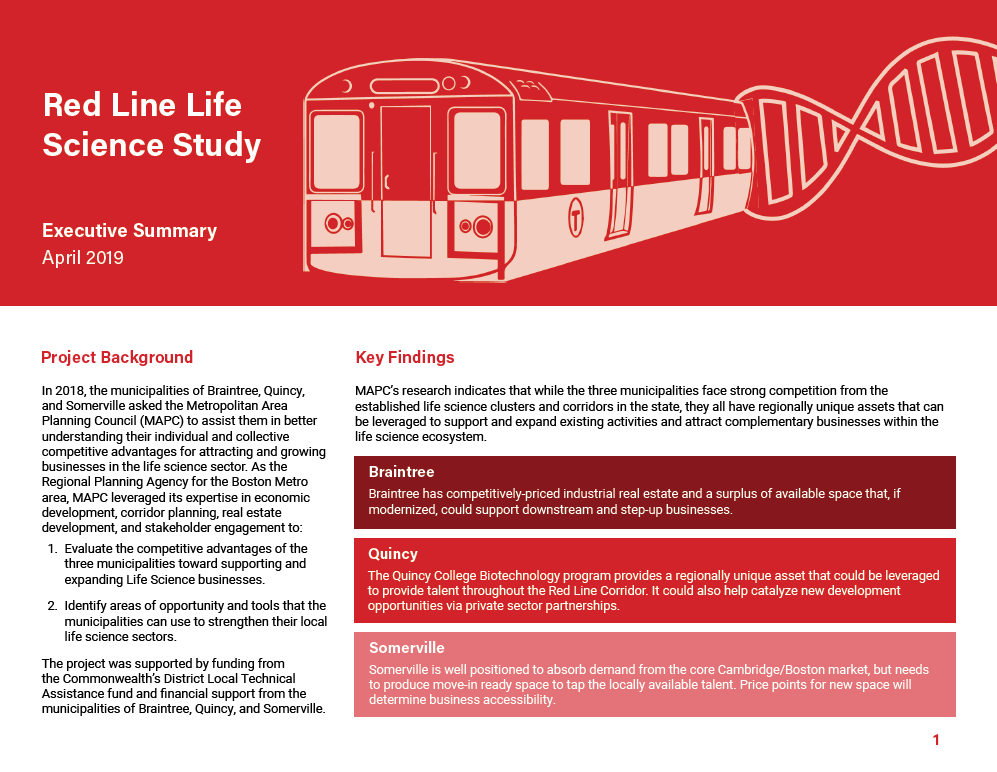
April 2019
Red Line Life Science Study
The Red Line Life Science Study examines the individual and collective advantages that Braintree, Quincy, and Somerville have for attracting and growing businesses in the life science sector.
MAPC evaluated the competitive advantages the three municipalities have to support and attract life science businesses and identified areas of opportunity and tools that the municipalities can use to strengthen their local life science sectors.
The project was supported by funding from the Commonwealth’s District Local Technical Assistance fund and financial support from the municipalities of Braintree, Quincy, and Somerville.
Key Findings
MAPC’s research indicates that while the three municipalities face strong competition from the established life science clusters and corridors in the state, they all have regionally unique assets that can be leveraged to support and expand existing activities and attract complementary businesses within the life science ecosystem.
- Braintree has competitively-priced industrial real estate and a surplus of available space that, if modernized, could support downstream and step-up businesses
- The Quincy College Biotechnology program provides a regionally unique asset that could be leveraged to provide talent throughout the Red Line Corridor. It could also help catalyze new development opportunities via private sector partnerships.
- Somerville is well positioned to absorb demand from the core Cambridge/Boston market, but needs to produce move-in ready space to tap the locally available talent. Price points for new space will determine business accessibility.

